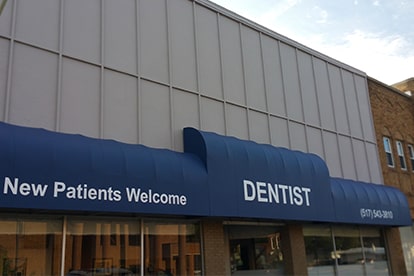
Sub Heading: The Evolution of Dentistry: Painless Dental Care
Gone are the days when a trip to the dentist was synonymous with discomfort and anxiety. With advancements in dental technology and techniques, the concept of painless dentistry has emerged, revolutionizing the way we perceive dental care. Let’s explore the evolution of painless dentistry and how it’s transforming the dental experience for patients worldwide.
Sub Heading: Understanding Painless Dentistry: Breaking Stereotypes
Painless dentistry, also known as gentle dentistry or anxiety-free dentistry, is a holistic approach to dental care that prioritizes patient comfort and relaxation. Contrary to popular belief, painless dentistry doesn’t just involve administering anesthesia to numb pain during procedures. Instead, it encompasses a range of techniques and technologies aimed at minimizing discomfort and anxiety throughout the entire dental experience.
Sub Heading: The Role of Technology: Making Dentistry Comfortable
One of the key drivers of painless dentistry is the integration of advanced technology into dental practices. From laser dentistry and digital imaging to computer-assisted anesthesia delivery systems, technological innovations have made dental procedures more precise, efficient, and comfortable for patients. These advancements allow dentists to perform procedures with greater accuracy and minimal discomfort, reducing the need for invasive techniques and lengthy recovery times.
Sub Heading: The Importance of Patient Comfort: A Priority for Dentists
In addition to technological advancements, the philosophy of painless dentistry emphasizes the importance of patient comfort and well-being. Dentists who practice painless dentistry prioritize open communication, empathy, and compassion, creating a supportive and relaxing environment for patients. By addressing patients’ concerns and fears with sensitivity and understanding, dentists can help alleviate anxiety and build trust, making the dental experience more positive and enjoyable for everyone involved.
Sub Heading: Techniques for Minimizing Discomfort: A Multi-Faceted Approach
Painless dentistry employs a variety of techniques to minimize discomfort and anxiety during dental procedures. These may include the use of topical numbing agents to desensitize the treatment area, distraction techniques such as music or television to divert attention away from the procedure, and conscious sedation methods to induce relaxation and reduce anxiety. By tailoring these techniques to each patient’s individual needs and preferences, dentists can create a customized treatment experience that prioritizes comfort and peace of mind.
Sub Heading: Overcoming Dental Anxiety: Empowering Patients
Dental anxiety is a common issue that affects millions of people worldwide, often leading to avoidance of dental care and neglect of oral health. Painless dentistry aims to address this issue by providing a supportive and non-judgmental environment where patients feel empowered to seek the care they need without fear or hesitation. By educating patients about the benefits of painless dentistry and addressing their concerns with empathy and understanding, dentists can help individuals overcome their anxiety and take control of their oral health.
Sub Heading: The Future of Dental Care: Embracing Comfort and Convenience
As technology continues to advance and our understanding of patient needs evolves, the future of dentistry looks brighter than ever. Painless dentistry is poised to become the standard of care, offering patients a more comfortable, convenient, and enjoyable dental experience. By embracing the principles of painless dentistry and prioritizing patient comfort above all else, dentists can revolutionize the way we think about dental care and ensure that everyone has access to the high-quality treatment they deserve. Read more about painless dentist
